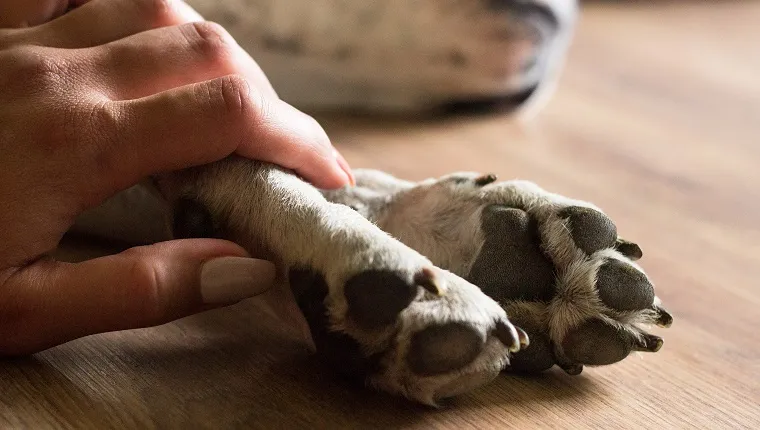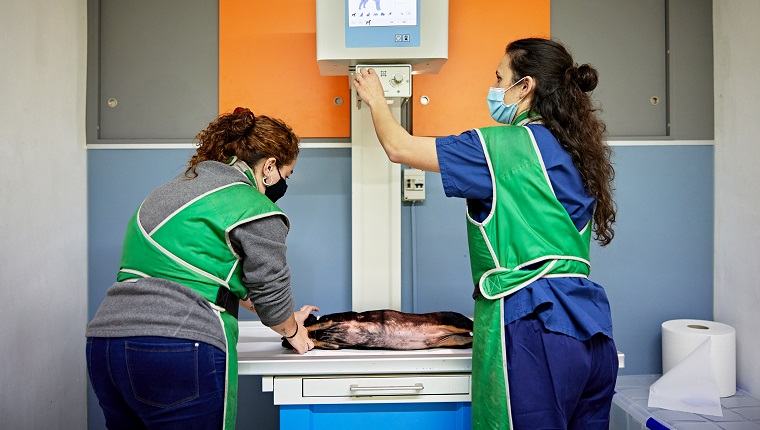Dislocated shoulder in dogs, also called shoulder luxation, is a medical condition that occurs when the bones that make up the shoulder become dislocated and end up out of place. This can also happen on a partial basis, which is referred to as a subluxated shoulder.
Suffering a physical trauma is often the cause of this condition. Additionally, certain breeds of dog, including miniature-sized pups, seem most at risk of suffering from shoulder luxation.
If you see signs that your dog might be suffering from a dislocated joint or bone, then you must consult your veterinarian for a proper diagnosis and advice. Here’s what you should know about the symptoms, causes, and treatments of dislocated shoulder in dogs.
Symptoms Of Dislocated Shoulder In Dogs
Dislocated shoulder in dogs can cause a range of symptoms. Some of the most commonly seen symptoms include:
- Limping
- Trying to avoid one limb touching the floor
- Swelling around the joint area
- Seeming to avoid running and jumping
- Loss of appetite
Causes Of Dislocated Shoulder In Dogs

The cause of dislocated shoulder in dogs is often due to a dog suffering physical trauma, such as being hit by a moving vehicle or experiencing a fall.
Certain breeds of dog seem to also suffer from shoulder luxation due to congenital factors. Some of the breeds most at risk include:
- Pomeranians
- King Charles Spaniels
- Miniature Poodles
- Chihuahuas
- Miniature Pinschers
Treatments For Dislocated Shoulder In Dogs
If you suspect that your dog is suffering from a dislocated shoulder, your veterinarian will want to conduct a full physical examination of your dog and also ask about any recent situations or circumstances that could have caused your dog to suffer physical trauma.
Your vet will pay close attention to the shoulder area and will likely examine both the affected shoulder and the healthy shoulder for comparison. In most cases, vets will use an X-ray to confirm the diagnosis.
When it comes to treatment, there are two courses of action: Closed reduction and open reduction.
Closed reduction is an attempt to physically pop the shoulder back into place without the use of surgery. The vet carries this out while your dog is under general anesthesia. If this technique is successful, a special sling will be used so that the shoulder stays in its proper place while your dog recovers.
Open reduction, by comparison, involves a surgical procedure to place your dog’s shoulder back into its correct place. When recovering from open reduction, your dog will also need to wear a specially-fitted sling.
Whichever method of treatment vets use, recovering dogs will need to get a large amount of rest. You should minimize your dog’s physical exercise and activity. Your vet can give you some guidelines tailored to your dog’s specific needs and physique.
During the recovery period, your vet will most likely prescribe pain medication for your dog. As always, if your vet prescribes any medicine for your dog, it is vital that you stick to the precise dosage and frequency instructions and complete the full course of medication.
Has your dog ever suffered from a dislocated shoulder? Did your vet pop it back into place, or did they use surgery? Tell us all about it in the comments below.









